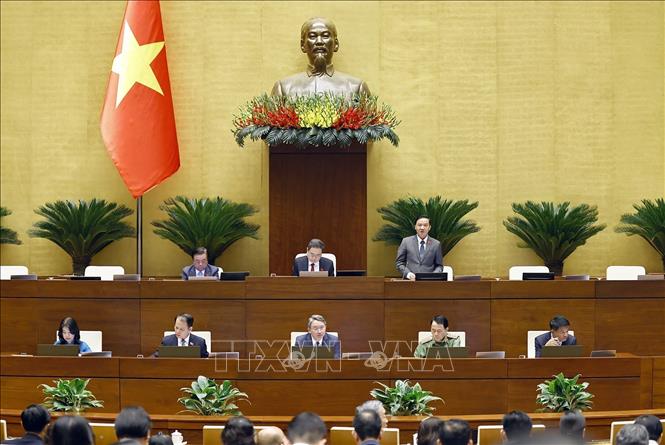
Deputy Speaker of the National Assembly Nguyen Khac Dinh delivers a speech. Photo: Doan Tan/TTXVN
Presenting a summary of the explanatory reports, feedback, and revisions on the four draft laws, the Chairman of the Committee on Law and Justice, Hoang Thanh Tung, stated that these four draft laws were separated from the current Law on Mutual Legal Assistance and had been discussed and commented on by the National Assembly at its 9th session...
The four draft laws, after being reviewed and revised, closely adhere to the objectives and viewpoints set forth when developing the draft laws, promptly institutionalizing the Party's policy on strengthening international cooperation in law and international integration in the new situation, perfecting the law on mutual legal assistance in general and the law in each field of extradition, transfer of persons serving prison sentences, mutual legal assistance in criminal matters and mutual legal assistance in civil matters in particular; overcoming the shortcomings and limitations in the implementation of the 2007 Law on Mutual Legal Assistance.
The Standing Committee of the National Assembly also directed relevant agencies to review and revise the draft laws to ensure consistency and uniformity among the four draft laws regarding common contents such as scope of application, subjects of application, definitions of terms, principles of judicial assistance and application of law, language in judicial assistance request documents, and issues of exemption from consular legalization, effective date and transitional provisions... as well as to improve the writing style and legislative techniques; and to review them with provisions of related laws regarding the authority of agencies and individuals conducting proceedings, procedural matters, and the organizational structure of judicial agencies to finalize the draft laws and ensure the consistency of the legal system.
Regarding the draft Extradition Law, after incorporating feedback and revisions, the draft Extradition Law comprises 4 chapters and 45 articles. Concerning the review and retrial of extradition decisions or decisions refusing extradition, the Standing Committee of the National Assembly believes that extradition activities are directly related to ensuring human rights, play a particularly important role in international judicial cooperation, and demonstrate national jurisdiction and sovereignty in the field of criminal justice.
The decision to extradite or refuse extradition must be made cautiously, in accordance with the law, and subject to strict judicial control through review and retrial procedures (if any) to prevent wrongful convictions and ensure that no criminals escape justice, while also demonstrating Vietnam's goodwill in international judicial cooperation.
The Standing Committee of the National Assembly proposed that the National Assembly retain the provisions on supervisory review and retrial of extradition decisions or decisions refusing extradition issued by competent People's Courts. At the same time, to ensure feasibility, Article 30 of the draft law has been revised to apply this procedure according to the provisions of the Criminal Procedure Code, and not to conduct supervisory review or retrial in cases where the extradition decision has already been executed.
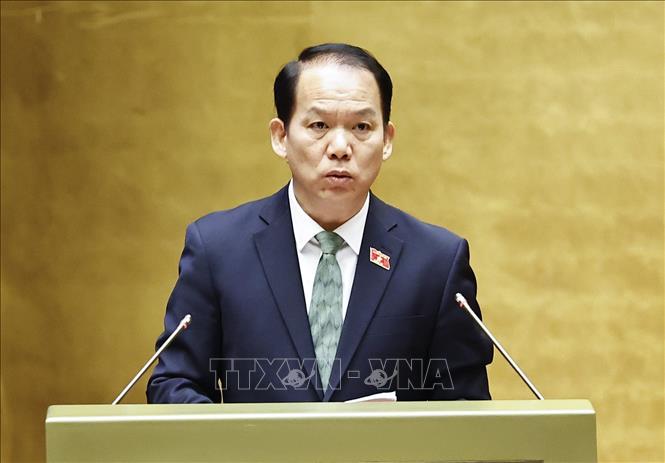
Hoang Thanh Tung, a member of the National Assembly Standing Committee, presented a summary of the reports explaining, receiving feedback, and revising the four draft laws: the Law on Extradition; the Law on Transfer of Persons Serving Prison Sentences; the Law on Mutual Legal Assistance in Criminal Matters; and the Law on Mutual Legal Assistance in Civil Matters. Photo: Doan Tan/TTXVN.
Regarding the draft Law on the Transfer of Persons Serving Prison Sentences, National Assembly deputies have given their opinions on two major issues of the draft Law: on the funding for the transfer of persons serving prison sentences (Article 11) and on the conversion of prison sentences (Article 23).
Presenting the report explaining, receiving feedback, and revising the draft Law on Transferring Persons Serving Prison Sentences, the Chairman of the National Assembly's Committee on Law and Justice, Hoang Thanh Tung, stated that regarding the funding for transferring persons serving prison sentences (Article 11), some opinions suggested specifying more clearly the voluntary contributions and support, as well as the management and use of this funding to ensure feasibility, transparency, and accountability; and also assigning the Government to regulate the management and use of this funding.
The Standing Committee of the National Assembly found the opinions of National Assembly deputies to be well-founded and consistent with reality because, although the funds voluntarily contributed by prisoners serving sentences, agencies, organizations, and other individuals can only be used to pay for the individual serving the sentence during the transfer from the transferring country to the receiving country, a clearer distinction is needed to avoid duplication of expenditures from the state budget and to ensure transparency.
Because this is a specific matter, and the level of support and voluntary contributions varies, to ensure the stability of the law and its suitability to practice, Clause 2 of Article 11 of the draft law assigns the Government the responsibility to provide detailed regulations on this matter.
At the same time, to clarify the State's responsibility in ensuring funding, and to be consistent with the three other draft laws on judicial assistance, Clause 1 of Article 11 needs to be revised as shown in the draft law.
Regarding the conversion of prison sentences (Article 23), the Committee on Law and Justice stated that some opinions suggested reviewing and revising the regulations to make them more specific, clear, and detailed, and also adding a provision to empower the Government to provide detailed regulations on this matter.
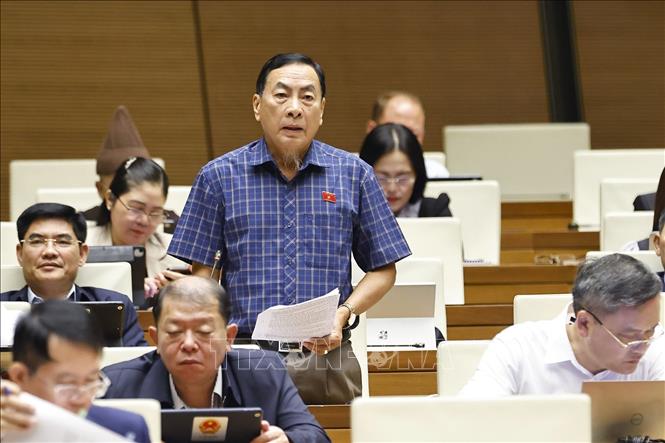
National Assembly representative Pham Van Hoa from Dong Thap province delivers a speech. Photo: Doan Tan/TTXVN
Speaking in the assembly hall, delegate Pham Van Hoa (Dong Thap) agreed with the regulations on funding for transferring prisoners serving sentences. Specifically, the Court must budget annually to carry out events and transfer prisoners abroad; the State budget is fully responsible for this funding.
However, the delegates suggested that, in cases where the offender, the extradited person, or their relatives, or their authorized representatives, voluntarily contribute to or support the costs of transferring the person serving a prison sentence, there should also be specific regulations. This would ensure that the transfer of prisoners serving sentences is quick and appropriate.
Regarding the regulations on converting prison sentences, delegate Pham Van Hoa argued that this regulation is necessary for cases where Vietnamese citizens residing abroad commit crimes, are sentenced, and their sentences are transferred back to Vietnam.
"The regulation on converting prison sentences is essential, and converting to a lower sentence from a foreign country is a humane policy," Representative Pham Van Hoa emphasized. However, the court needs to carefully consider the specific offenses for which to convert prison sentences. This must ensure compliance with Vietnamese law and the conditions for protecting personal rights.
Source: https://baotintuc.vn/thoi-su/quy-dinh-cu-the-viec-tu-nguyen-dong-gop-ho-tro-kinh-phi-chuyen-giao-nguoi-dang-chap-hanh-an-phat-tu-20251027125709448.htm



![[Photo] Prime Minister Pham Minh Chinh receives Lao Minister of Education and Sports Thongsalith Mangnormek](/_next/image?url=https%3A%2F%2Fvphoto.vietnam.vn%2Fthumb%2F1200x675%2Fvietnam%2Fresource%2FIMAGE%2F2025%2F12%2F16%2F1765876834721_dsc-7519-jpg.webp&w=3840&q=75)
![[Photo] Prime Minister Pham Minh Chinh receives the Governor of Tochigi Province (Japan)](/_next/image?url=https%3A%2F%2Fvphoto.vietnam.vn%2Fthumb%2F1200x675%2Fvietnam%2Fresource%2FIMAGE%2F2025%2F12%2F16%2F1765892133176_dsc-8082-6425-jpg.webp&w=3840&q=75)
![[Live] 2025 Community Action Awards Gala](/_next/image?url=https%3A%2F%2Fvphoto.vietnam.vn%2Fthumb%2F1200x675%2Fvietnam%2Fresource%2FIMAGE%2F2025%2F12%2F16%2F1765899631650_ndo_tr_z7334013144784-9f9fe10a6d63584c85aff40f2957c250-jpg.webp&w=3840&q=75)
![[Image] Leaked images ahead of the 2025 Community Action Awards gala.](/_next/image?url=https%3A%2F%2Fvphoto.vietnam.vn%2Fthumb%2F1200x675%2Fvietnam%2Fresource%2FIMAGE%2F2025%2F12%2F16%2F1765882828720_ndo_br_thiet-ke-chua-co-ten-45-png.webp&w=3840&q=75)





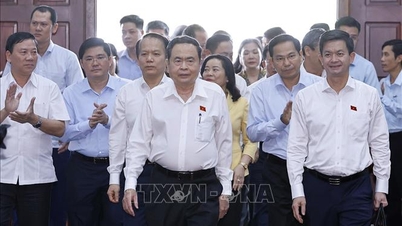

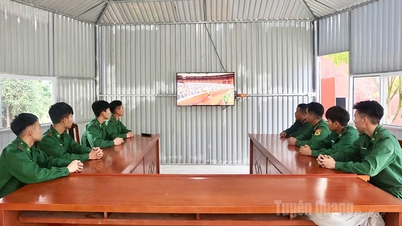





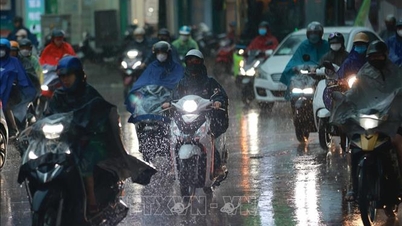















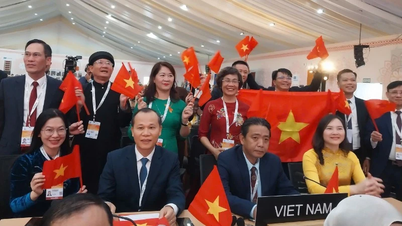







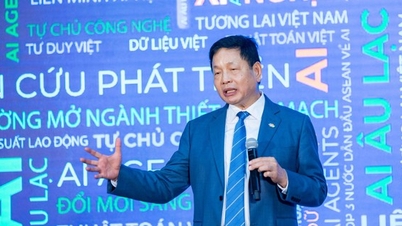
























![[Photo] Prime Minister Pham Minh Chinh attends the Vietnam Economic Forum 2025](https://vphoto.vietnam.vn/thumb/402x226/vietnam/resource/IMAGE/2025/12/16/1765893035503_ndo_br_dsc-8043-jpg.webp)
































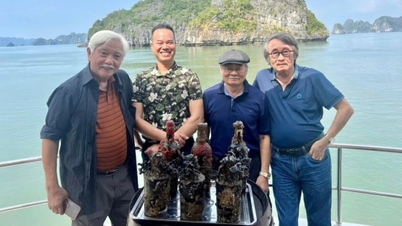





Comment (0)